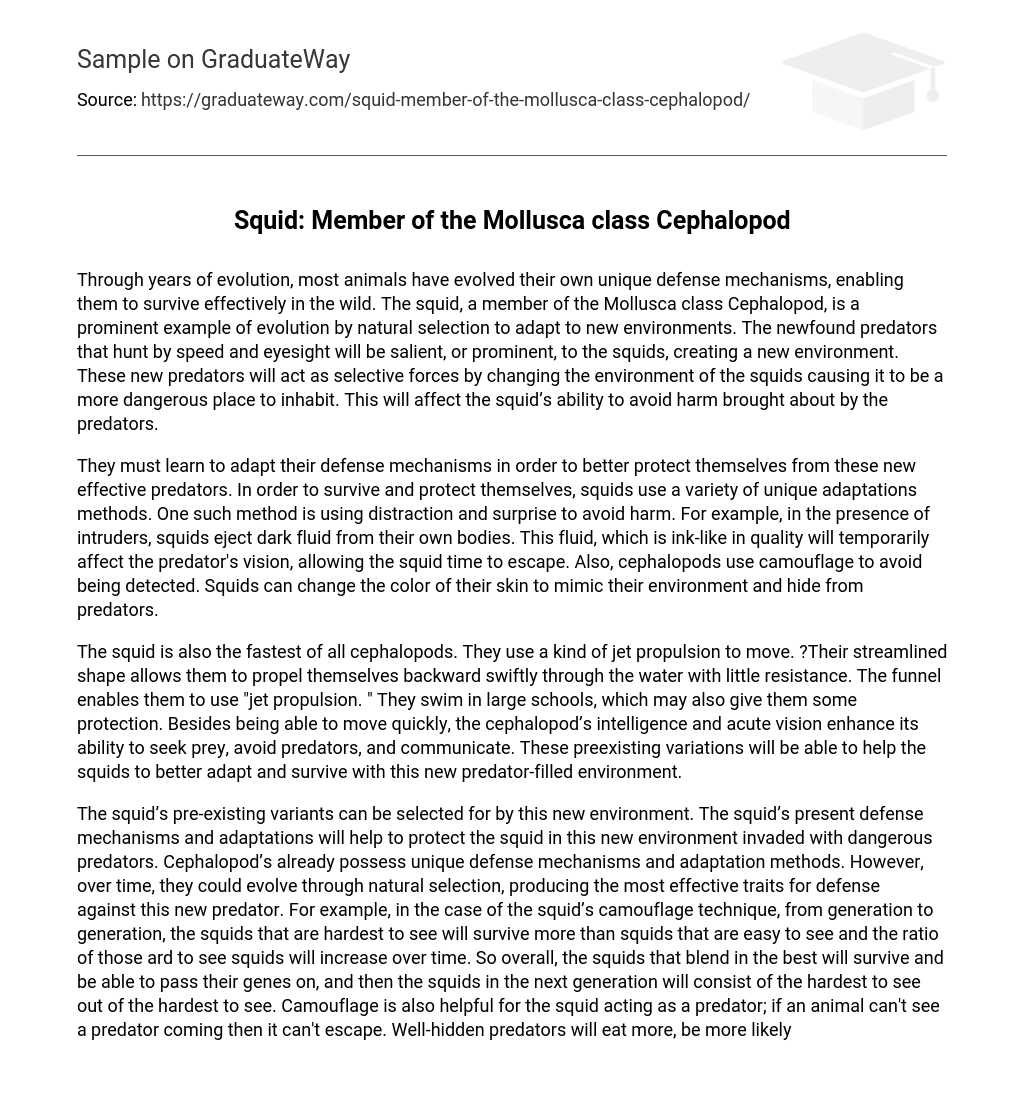Animals in the wild have developed defense mechanisms to survive over time. The squid, a member of the Mollusca class Cephalopod, exemplifies adaptation and evolution through natural selection. However, predators that depend on speed and eyesight pose a new threat to the squid. These predators are easily detected by the squids and introduce a novel environmental factor. Hence, they serve as selective forces that heighten the danger level for the squid’s habitat. Consequently, these predators impact the squid’s ability to defend itself.
Squids have developed defense mechanisms to enhance self-defense against formidable predators. They use a variety of adaptation strategies to ensure their survival and protection. One strategy involves using distractions and surprises, such as releasing a dark fluid similar to ink from their bodies when encountering intruders. This temporarily impairs the predator’s vision, giving the squid an opportunity to escape.
In addition to this strategy, cephalopods also employ camouflage techniques for avoiding detection. Squids can change the color of their skin in order to effectively blend into their surroundings and hide from predators.
The squid, which is the fastest among all cephalopods, utilizes jet propulsion for movement. It can quickly move backward through the water with little resistance thanks to its streamlined shape. The squid’s funnel allows it to employ “jet propulsion.” Swimming in large groups may offer additional protection for squids. Furthermore, their high intelligence and excellent vision enhance their abilities in hunting, avoiding predators, and communicating. These current adaptations will assist squids in adapting and surviving in this newly predator-infested environment.
The squid’s existing variations can be advantageous in this new environment, and their current defense mechanisms and adaptations will help protect them from the dangerous predators that have invaded. Cephalopods already have unique defense mechanisms and methods of adaptation, but these traits could evolve over time through natural selection to develop more effective defenses against the new predator. For instance, squids with excellent camouflage are more likely to survive compared to easily visible ones, leading to an increase in the proportion of hard-to-spot squids over generations. As a result, surviving squids will possess superior camouflage abilities and pass on these genes. This means that future generations of squids will primarily consist of individuals who are extremely difficult to detect. Camouflage also benefits squids when they act as predators since if prey cannot see them approaching, they won’t be able to escape. Consequently, well-hidden predators have better feeding rates, increased chances of survival, and a higher likelihood of passing on their genes. The same principle applies to other cephalopod traits such as advanced eyesight and agility.
The natural selection process of cephalopods’ defense characteristics will enable them to adapt more effectively to their environment over time, helping them evade new predators. (References: Benjamins, Steven. “Cephalopod Predators.” The Cephalopods Page. N.p., n.d. Web. 29 Oct 2012.





